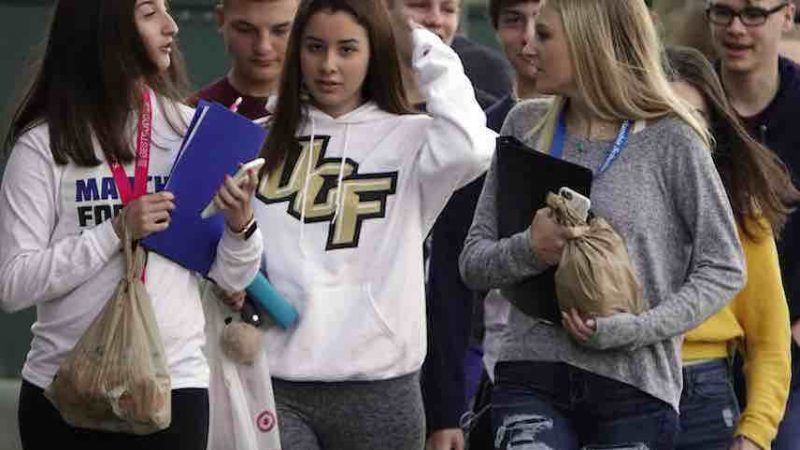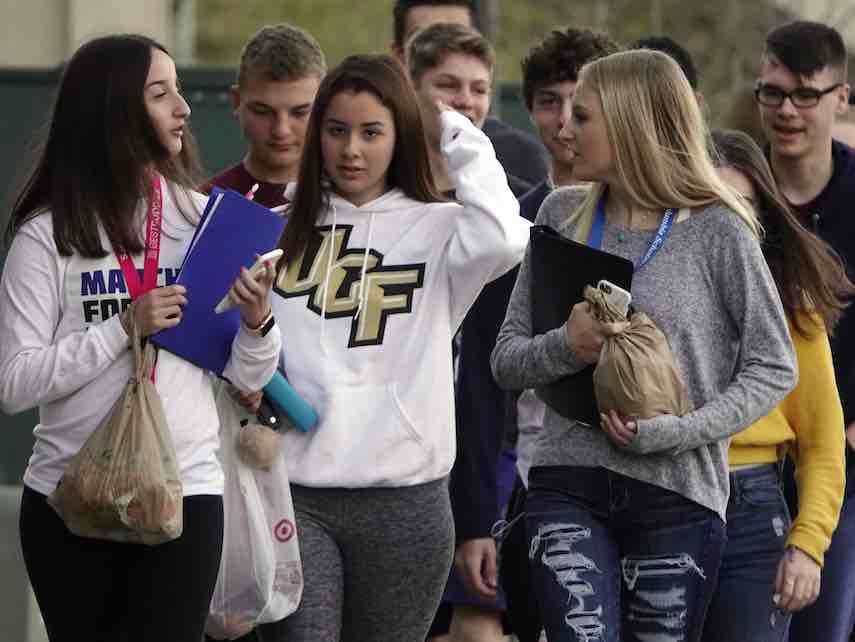Mandatory Transparent Backpacks Violate Students' Privacy Rights
"My school is starting to feel like a prison."


Students returned to Marjory Stoneman Douglas High School this morning sporting new, mandatory transparent backpacks.
This so-called safety measure, like so many others proposed in the wake of the horrific mass shooting—installing metal detectors, hiring more school resource officers, raising the minimum age to purchase an AR-15—is security theater.
One can understand why survivors of the Parkland shooting might want an extra level of comfort as they resume classes this week. But many students seem to understand that the transparent backpack mandate is a violation of their privacy rights. "My school is starting to feel like a prison," student Sarah Chadwick said, according to Buzzfeed News.
Another student, Delaney Tarr, posted a picture of her new backpack on Twitter with the caption, "Starting off the last quarter of senior year right, with a good ol' violation of privacy!" She also complained about walking through a fenced line with a checked bag.
Tarr is right. These are perfectly reasonable objections to a policy that probably isn't going to make Stoneman Douglas any safer from a rampage. In any case, teenagers should be allowed to express their individuality by choosing their own backpacks and keeping their stuff hidden from private view. Many students might be carrying items than they would rather not display to the entire student body: medicine, toiletries, etc.
The same goes for other "security" measures, such as metal detectors, wands, and school resource officers. There are good reasons to doubt that these policies actually promote safety. They do, however, make schools more prison-like. In the case of school resource officers, the attempted trade-off between safety and liberty seems especially unwise. This is something students of color tend to understand a bit better than their white peers: At a press conference last week, black Stoneman Douglas students told reporters that more cops would actually make them feel less safe. Police violence often disproportionately affects minority communities, so such concerns seem well-founded.
Policies aimed making it harder for people to own firearms aren't fundamentally different from the above security measures, even if some students feel otherwise. Take Carly Novell, who wrote on Twitter: "We want to be safe, not uncomfortable. The only thing that can really have an impact on our safety is gun control."
But "gun control" is another dubious trade-off, like transparent backpacks and cops in schools. It's just that with this piece of security theater, the people who suffer the infringements on their liberties are gun owners rather than (or as well as) students. Gun owners of color, of course, have good reason to think a governmental anti-gun policy would disproportionately target them. That's one reason Killer Mike, the left-leaning rapper and activist, is suspicious of gun control (though he apparently resents being used by the NRA).
It may not matter to Novell or the Parkland activists whether other people are allowed to exercise their Second Amendment rights. But the principle is the same as it is with transparent backpacks: No one's liberties should be infringed just because agents of the state arbitrarily decide that a new policy might somehow make somebody feel safer.


Show Comments (169)